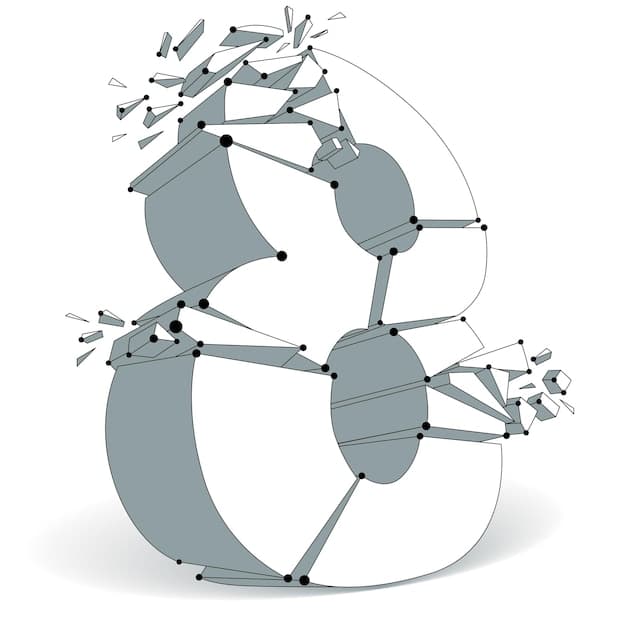Quantum Computing Breakthrough: Is the US Ready for the Tech Revolution?

Quantum Computing Breakthrough: Is the US Ready for the Next Tech Revolution? examines the United States’ readiness to embrace rapid advancements in quantum computing, analyzing its potential impact on industries, national security, and the workforce, along with challenges and opportunities.
The relentless march of technological progress has brought us to the cusp of a new era: the age of quantum computing. But is the United States truly prepared for the seismic shifts that this revolutionary technology promises to bring? Quantum Computing Breakthrough: Is US Ready for the Next Tech Revolution? explores the opportunities and challenges.
Quantum Computing: The Next Technological Frontier
Quantum computing, once a theoretical concept, is rapidly becoming a tangible reality. This section introduces you to the basics of quantum computing and how it’s different from classical computing.
Exploring the transformative potential of quantum computing and its increasing relevance in today’s technological landscape.
What is Quantum Computing?
Unlike classical computers that store information as bits representing 0 or 1, quantum computers use quantum bits, or qubits. Qubits can exist in multiple states simultaneously due to a phenomenon called superposition. This, along with entanglement, allows quantum computers to perform calculations far beyond the reach of even the most powerful supercomputers.
Classical vs. Quantum
Classical computers process information sequentially, performing one calculation at a time. Quantum computers, on the other hand, can perform multiple calculations simultaneously. This exponential increase in processing power opens doors to solving complex problems that are currently intractable.

- Increased Processing Power: Quantum computers promise exponential processing power, impacting simulations and data analysis.
- Enhanced Problem-Solving: They can tackle complex problems in optimization, cryptography, and drug discovery more efficiently.
- New Algorithmic Approaches: Quantum algorithms unlock new possibilities for computation beyond classical methods.
Quantum computing’s increased processing power allows for unprecedented computational speed and efficiency, potentially revolutionizing fields reliant on complex calculations and simulations.
US Investments in Quantum Computing
Recognizing the potential of quantum computing, the United States has made significant investments in research and development.This section examines the major funding initiatives and key players in the US quantum computing landscape.
Discovering how the United States is strategically investing in research, development, and initiatives to maintain its lead in quantum computing.
Government Funding
The US government has launched several initiatives to support quantum research, including the National Quantum Initiative Act. This act aims to accelerate quantum research and development, foster a quantum-ready workforce, and promote collaborations between government, academia, and industry.
Private Sector Involvement
Companies like Google, IBM, and Microsoft are heavily invested in quantum computing. They are developing their own quantum processors and software, striving to build practical quantum computers that can solve real-world problems.
- Strategic Initiatives: US quantum strategy is focused on maintaining a competitive edge through innovation and collaboration.
- Academia’s Role: Universities are integral to quantum computing research in the US, contributing to breakthroughs and workforce development.
- Challenges and Opportunities: Balancing resources, talent, and strategic partnerships is key to maximizing US quantum computing potential.
These collaborative efforts are crucial in propelling quantum technology forward, ensuring the US remains at the forefront of this revolutionary field.
Quantum Computing Applications Across Industries
The potential applications of quantum computing span a wide range of industries. This section highlights the profound effects on sectors like healthcare, finance, and national defense, showing how quantum computing might reshape the future landscape.
Analyzing how quantum computing is set to revolutionize various fields, from healthcare to finance, by solving complex problems previously deemed unsolvable.
Healthcare
Quantum computers can simulate molecular interactions, accelerating drug discovery and personalized medicine. They can also optimize treatment plans and improve the accuracy of medical diagnoses.
Finance
In the financial sector, quantum computers can enhance risk management, optimize investment strategies, and prevent fraud. They can solve complex optimization problems, leading to more efficient financial models.

Quantum computing’s transformative impact on these industries positions it as a game-changer, unlocking potential across various domains.
The Quantum Workforce and Education
As quantum computing advances, the demand for skilled professionals continues to grow. This section explains the growing need for a quantum-ready workforce and the efforts to educate and train individuals in this field.
Discussing the growing demand for experts in quantum computing and the educational initiatives aimed at preparing professionals for this cutting-edge field.
Building a Quantum-Ready Workforce
The US needs a workforce equipped with the knowledge and skills to develop, maintain, and utilize quantum computers. This requires investment in education and training programs that cover quantum mechanics, computer science, and related fields.
Educational Initiatives
Universities and colleges are introducing quantum computing courses and degree programs. Industry collaborations with academic institutions are also helping to provide hands-on training and research opportunities.
- Key Skills Required: Expertise in quantum mechanics, computer science, and mathematics is essential for quantum computing professionals.
- Training Programs: Targeted training programs can prepare individuals for roles in quantum computing development and application.
- Addressing the Skills Gap: Investing in education and training is critical to meeting the demand for a skilled quantum workforce.
Preparing a quantum-ready workforce is essential for the US to harness the full potential of quantum computing and maintain its competitive edge.
Cybersecurity Implications of Quantum Computing
Quantum computing poses both opportunities and threats to cybersecurity. This section describes the cybersecurity risks associated with powerful quantum computers and the strategies to mitigate them.
Reviewing the double-edged sword of quantum computing in cybersecurity, focusing on both the threats to current encryption methods and the potential for advanced quantum-resistant security measures.
The Threat to Existing Encryption
Quantum computers can break many of the encryption algorithms currently used to secure data and communications. This includes widely used algorithms like RSA and ECC, which are the foundation of online security.
Quantum-Resistant Cryptography
To address this threat, researchers are developing quantum-resistant cryptographic algorithms. These algorithms are designed to be secure against attacks from both classical and quantum computers. Governments and organizations are working to transition to these new cryptographic standards.
Understanding the encryption battle between quantum computing and cybersecurity is vital for maintaining data and communication security.
Challenges and Roadblocks to Quantum Supremacy
Despite the significant progress in quantum computing, there are still several challenges to overcome. This section explains the key obstacles that the US must address to achieve quantum supremacy.
Detailing the challenges and obstacles in the pursuit of quantum supremacy, including technological, economic, and workforce-related hurdles.
Technological Hurdles
Building and maintaining stable and scalable qubits is a major challenge. Qubits are highly sensitive to environmental noise, which can lead to errors in calculations. Improving qubit stability and reducing error rates are critical for building practical quantum computers.
Economic Considerations
The development and deployment of quantum computers require significant investment. Balancing the costs of research and development with the potential economic benefits is essential for sustainable progress.
- Scalability Issues: Researchers aim for scalable quantum systems to tackle more complex computations effectively.
- Error Correction: Overcoming errors during calculations is crucial for quantum computers to produce reliable results.
- Infrastructure Needs: Advanced facilities and technologies are necessary to advance quantum computing research and development.
Overcoming these hurdles is crucial for realizing the full potential of quantum computing and maintaining a competitive edge in this transformative field.
| Key Point | Brief Description |
|---|---|
| 💡 Quantum Computing Basics | Quantum computers use qubits, offering far greater processing power than classical computers. |
| 💰 US Investments | The US government and private sector are investing heavily in quantum computing R&D. |
| ⚕️ Industry Applications | Quantum computing promises to revolutionize healthcare, finance, and national defense. |
| 🛡️ Cybersecurity Implications | Quantum computers pose threats to current encryption but also offer potential for quantum-resistant cryptography. |
Frequently Asked Questions
▼
A qubit, or quantum bit, is the basic unit of information in a quantum computer. Unlike classical bits, qubits can exist in multiple states simultaneously due to superposition.
▼
Classical computers process information sequentially, while quantum computers can perform multiple calculations simultaneously. This allows them to tackle complex problems much faster.
▼
Challenges include maintaining qubit stability, reducing error rates, and developing quantum-resistant cryptographic algorithms to protect against security threats.
▼
The US government and private sector are investing in research, development, and educational initiatives to foster a quantum-ready workforce and maintain technological leadership.
▼
Industries such as healthcare (drug discovery), finance (risk management), and national defense (enhanced security) are expected to benefit significantly from quantum computing.
Conclusion
As the United States navigates the complexities of the quantum revolution, strategic investment, education, and collaboration will be crucial to harnessing the technology’s full potential. While challenges remain, the transformative impact of quantum computing on industries and national security makes it imperative for the US to remain at the forefront of this technological frontier.





